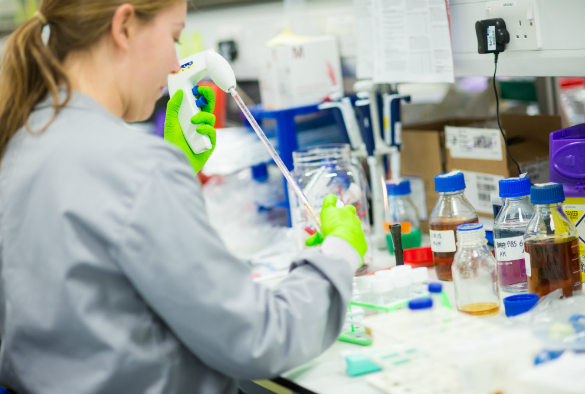
A five year Medical Research Council (MRC) Programme grant totalling more than £1.5 million has been awarded to scientists at the University of Liverpool’s Institute of Infection and Global Health, to determine the bacterial, host and environmental factors that lead to pneumococcal disease.
Streptococcus pneumoniae (the pneumococcus) is a major human pathogen causing more than two million deaths per year; more than HIV/AIDS, measles and malaria combined. It is the leading cause of death due to infectious disease in children under 5 years of age, but is also part of the normal microbial community of the human upper airways (the nasopharynx).
The new five-year project will help scientists to determine the various bacterial factors and host conditions that allow pneumococci to go from harmless nasopharyngeal carriage to life threatening invasive disease and will also identify groups or individuals at particular risk of developing disease and inform the design of more effective pneumococcal treatments and vaccines.
Lead investigator Professor Aras Kadioglu said: “The pneumococcus frequently colonises our nasopharynx without causing any harm. It is tolerated by our immune system, yet, the pneumococcus is also a dangerous pathogen and can cause severe inflammation and invasion of the lung, blood or brain, resulting in life threatening diseases.
“It is still not understood how and why pneumococci progress from harmless commensal to dangerous pathogen. The aim of our MRC-funded Programme grant is to answer this question.”
Professor Bob Burgoyne, Executive Pro Vice Chancellor for the Faculty of Health and Life Sciences, said: “ I am pleased to congratulate Aras and his colleagues on winning this grant particularly as this is an area of research that will have a significant impact on health.”
The study titled ‘The role of immune tolerance and regulation in pneumococcal carriage and invasive disease’ is led by Professor Kadioglu, together with colleagues Dr Daniel Neill and Professor Neil French at the Institute of Infection and Global Health, as well as collaborators at the Universities of Birmingham, Manchester, University College London, and Trinity College Dublin.
Join the team
The following postdoctoral research positions are currently being advertised to support this new project. Applications close on 6 April 2017. For more information click on the links below or visit https://www.liverpool.ac.uk/working
– Postdoctoral Research Associate in Bacteriology and Immunology
– Postdoctoral Research Associate in Clinical Immunology